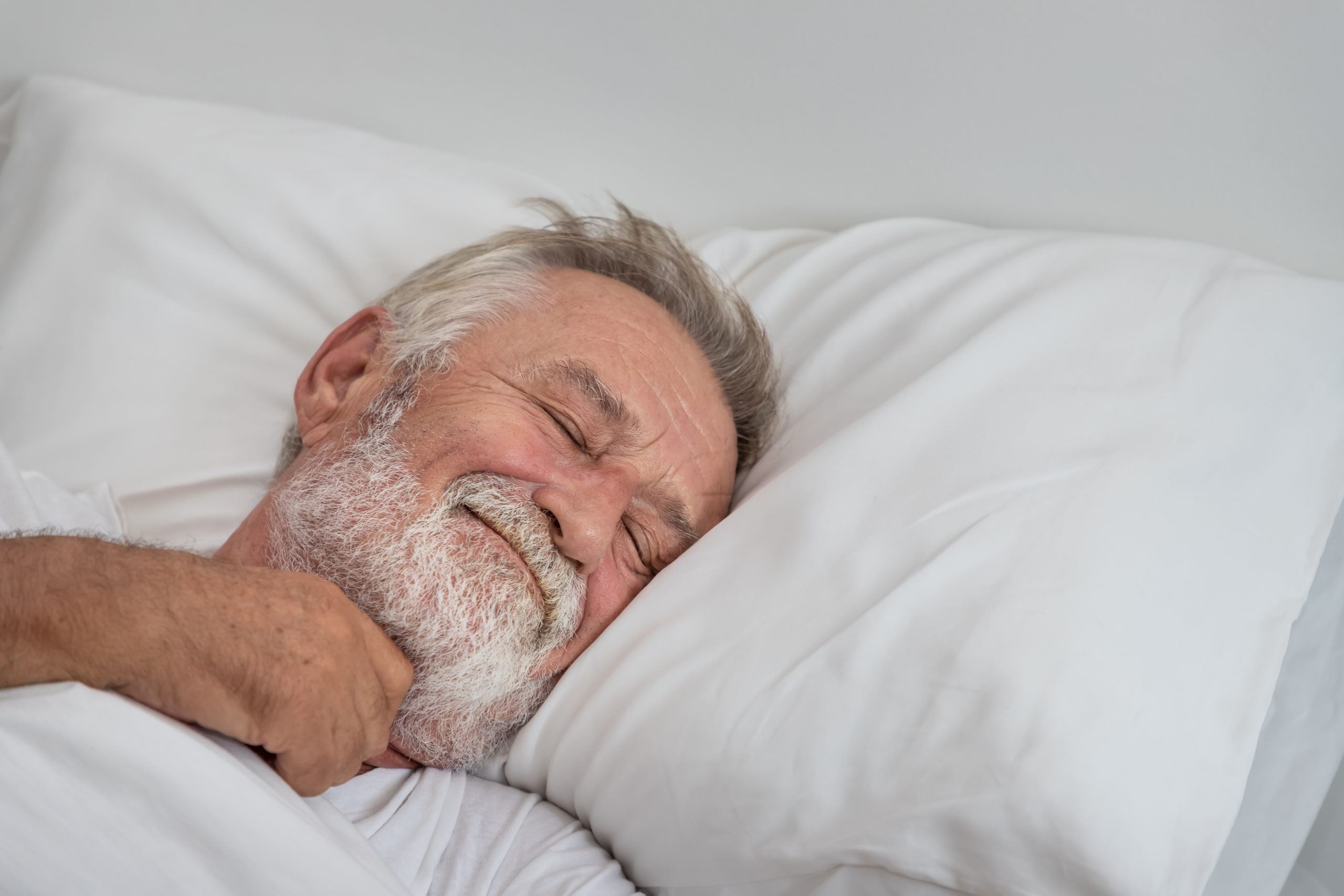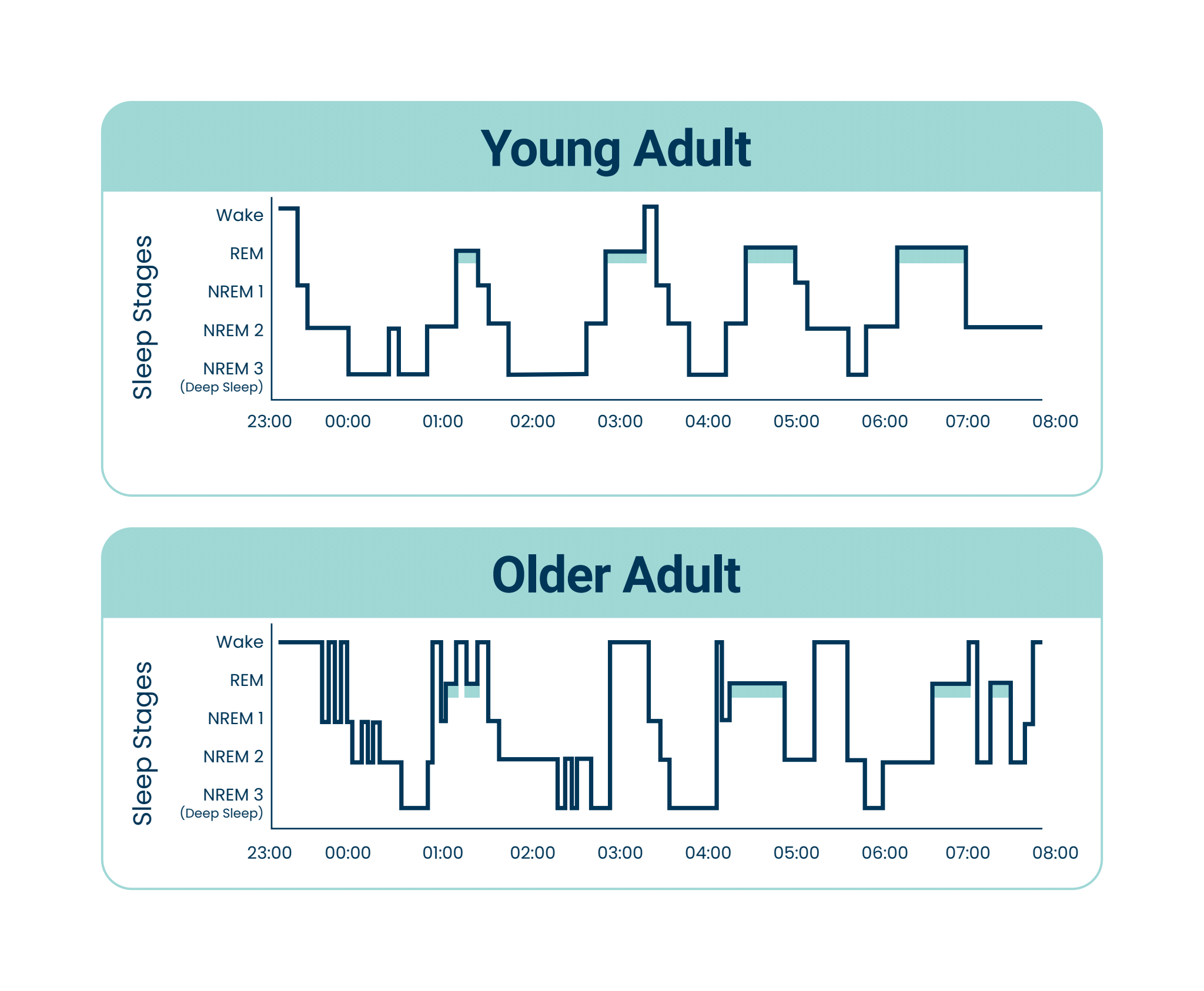The Power of Sleep and Its Impact on Our Longevity

Recent advancements in technology and groundbreaking discoveries in science have shed light on one of the major – yet elusive – lifelong goal for many individuals: to live healthier, longer lives. The monumental improvement in global life expectancy was among the greatest achievements of the 20th century. In 1900, the life expectancy at birth was 31 years – by 2021, it had risen to nearly 73.
Today, helping people age well is a new healthcare priority. Delaying or even reversing the aging process will have cascading benefits across disease prevention and quality of life. Rather than developing a magic pill, scientists have started to examine behaviors that can be harnessed to push future generation’s life expectancy well past 100 – and they may have an answer.
How about the one behavior we do every single night that already takes up a third of our lives: sleep. This shouldn’t come as a surprise. Sleep has a myriad of essential physiological functions including (definitely not limited to):
- Immunity
- Metabolic functioning
- Endocrine (hormonal) functioning
- Cognition
- Thermoregulation
- Waste clearance in the brain
Scientists now believe that sufficient, consistent, and quality sleep may be key to unlocking an increase in global life expectancy. Research shows that those individuals able to successfully reach very old age – the rare centenarians that live to 100 – generally experience optimal sleep across the lifespan. On the other hand, poor sleep may accelerate the aging process; sleep deprivation affects nearly every physiological function in the body. As a result, some studies even suggest that there is a relationship between insufficient sleep and life expectancy.
In Professor Matthew Walker’s highly acclaimed book, Why We Sleep, he notes that, “The shorter you sleep, the shorter your life span. The old maxim: ‘I’ll sleep when I’m dead’ is therefore unfortunate. Adopt this mindset, and you’ll be dead sooner and the quality of that (shorter) life will be worse.”
Sleep Across The Lifespan
Before we dig into data examining the relationship between sleep and longevity, it’s important to first understand how sleep changes throughout the lifespan.
As we age, our sleep deteriorates. In fact, sleep drastically changes throughout the lifespan. So much so, that the quantity and quality of our sleep can be used as an aperture through which we can view the brain’s aging. Below, you can see what’s called a hypnogram – a diagram used to help visualize sleep and its different stages. You can see from the top image that young adults tend to have a rhythmic and systematic amount of sleep stages during the night. The night begins with plenty of deep sleep (shown as NREM-3 and NREM-4), followed by an increase in REM sleep (when we’re most likely to dream) during the second half of the night.
In older adults, this pattern becomes disrupted, and overall sleep becomes significantly fragmented. The amount of time spent in deep and REM sleep is reduced, and the amount of time spent awake throughout the night increases.

And it’s not just the quantity, or the time spent in these sleep stages, that become disrupted. It’s the quality of sleep stages that becomes impaired. The slow waves seen in deep sleep that are responsible for many important functions are less intense and less dense as we age. Sleep spindles – a hallmark of NREM sleep – slow down and are less prevalent in the elderly. In short, the brain’s ability to generate healthy electrical sleep-related activity declines as we age.
But this isn’t a normal process. Older adults don’t suddenly require less sleep than they used to – they’re simply unable to generate that still essential sleep. There are parallels here with how scientists are beginning to think about aging. Some scientists believe it’s time to classify aging as a disease that we should strive to cure, rather than as a natural consequence of life.
Sleep Quantity and Longevity
When we look at data from prospective cohort studies – or long-term studies following groups of people over time – we really start to see the potential associations between poor sleep and mortality.
Take, for example, the Finnish Twin Study from the early 1980s. In this study, researchers followed twins over their lifespan and measured sleep duration and also their use of hypnotics, or sleeping medications. They correlated these findings back to all-cause mortality (AKA, death for any reason). Before we discuss the findings, it’s important to highlight that these studies cannot tease apart the cause of why sleep may impact longevity – they’re only estimating relationships. There are also important caveats to these studies that warrant mention. These include an overreliance on self-reported sleep measures and not taking into account individual sleep differences and needs.
With that said, what they found was surprising.
First, frequent use of hypnotics and/or tranquilizers in adulthood was associated with a two-fold increase risk of all-cause death. Next, although the researchers found a higher risk of all-cause death in short sleepers – those sleeping less 7 hours a night – they also found similar increases in those sleeping more than 9 hours a night. We see similar trends when we look at other groups of people, and those in the general population. In another study, sleeping less than 7 hours a night, and also more than 9 hours, was associated with all-cause mortality.
Other studies show that there is a relationship between both long and short sleep duration and risk of stroke. Sleep disorders including obstructive sleep apnea, restless legs syndrome, and insomnia also significantly increase stroke risk. The risk of other diseases such as coronary heart disease – the leading cause of death in the United States – also appears to be increased in long sleepers.
These studies suggest that there may be a “goldilocks zone” for optimal sleep duration whereby sleeping both too little, but also potentially too much, may affect disease development and even longevity.
However, more research is needed to understand why more sleep is not always better. Do long sleepers spend most of the night in lighter sleep stages, with limited to no deep or REM sleep? Are there other accompanying diseases in long sleepers that are actually responsible for reducing longevity? These questions have yet to be answered.
Sleep, Disease, and Longevity
Generally, the research on short sleep duration and longevity is better described. For example, a recent study found an increased risk in dementia in those sleeping less than 6 hours a night during midlife. In particular, persistent short sleep duration at age 50, 60, and 70 compared to persistent normal sleep duration was also associated with a 30% increased dementia risk independent of other potentially driving factors. These findings suggest that short sleep duration in midlife is associated with an increased risk of late-onset dementia.
Both poor sleep quality and short sleep duration are also associated with impaired glucose metabolism, or the process that ensures a constant supply of energy to living cells. After 5 nights of only 4-hours of sleep, glucose metabolism is compromised by up to approximately 50 percent. We also see similar effects for slow-wave sleep deprivation – highlighting the importance of deep sleep for physiological functioning. Taken together, sleep loss’ impact on glucose metabolism may promote the development of obesity, diabetes, and other endocrine/hormonal conditions, further reducing quality of life and negatively impacting longevity.
Optimal Sleep Patterns Associated With Longevity
So, what are the optimal sleep characteristics of those that live long? One study compared sleep patterns in “the oldest of old individuals” (those between 85-105 years old) relative to younger and older adults (60-70 years old). The researchers found that those with higher longevity had strict and consistent sleep-wake schedules and retained optimal levels of slow-wave (deep) sleep, compared with older adults.
Another study examined the association between sleep patterns and health in families with exceptional longevity. The researchers found that centenarians were protected from age-related factors despite being more likely to show signs of risk sleep patterns (such as oversleeping and napping), suggesting that certain genes may be protective against the harmful effects of sleep disruption.
Finally, Japanese researchers examined sleep patterns and lifestyle habits of people living in Ogimi, a village of longevity. Those in the village that authors noted were in “good sleep health” were more likely to take short naps, less likely to doze off in the middle of the day, and were more likely to exercise regularly.
Clearly, sleep is a major cornerstone for health and wellness. Optimal sleep may be the single most essential pillar at resetting and restoring our body, while insufficient sleep affects nearly every physiological function in the body and is associated with the development and evolution of disease. You can begin to harness the power of sleep by following sleep hygiene tips (see how here!) and making it a non-negotiable priority for your overall health, wellness, and longevity.
SleepScore Labs Solutions
Download the free SleepScore App for insights and articles on how well you sleep, the quality and quantity of your sleep cycles, and sleep improvement progress with science-backed tips and insights. Download it for free from App Store and Google Play Store!
You can also visit the SleepScore Store for a wide range of sleep-promoting products carefully curated by SleepScore Labs’ team of researchers including white noise machines, lighting solutions, and more to support your sleep-wake schedule!
Sleep well!